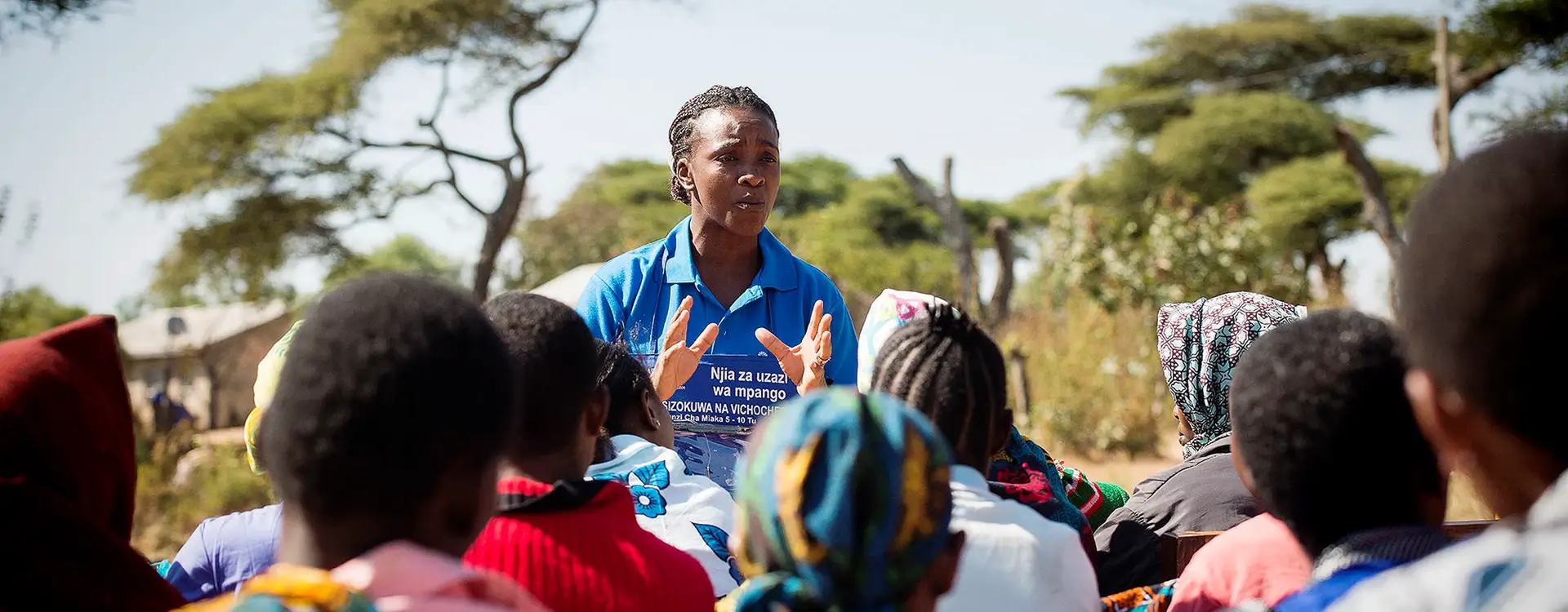
Tanzania
MSI Tanzania
Since 1989, MSI Tanzania has worked to increase access to high-quality, affordable sexual and reproductive health services, ensuring quality healthcare is available to even the hardest-to-reach clients.
MSI Tanzania provides a range of contraceptive services, including long-acting and permanent methods, post-abortion care following an unsafe abortion, as well as wider maternity, child, and reproductive health services, including STI testing.
MSI Tanzania’s projects are designed to fill gaps in provision and reach those who have no alternative access. The country programme has a strong focus on reaching adolescents, those living in poverty, and other marginalised groups, including people with disabilities.
Contact us
Contact our Tanzania support office to talk about our work.
Marie Stopes Tanzania
Plot No. 421/422
Mwenge – Kijitonyama area
P.O. Box 7072
Dar es Salaam
Tanzania
Tel: +255 22 2774991
Email: [email protected]
Looking for services
Looking for services in Tanzania? Use the contacts below or visit our Tanzania website.





